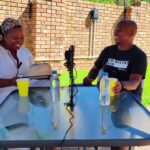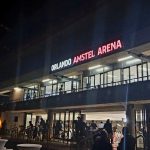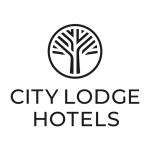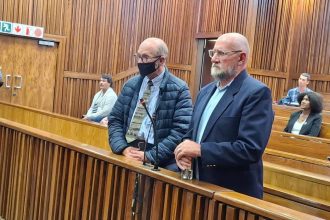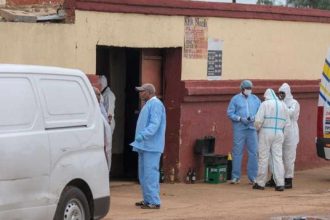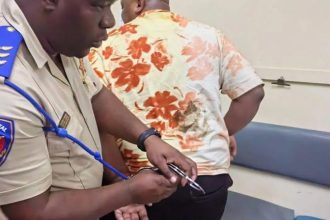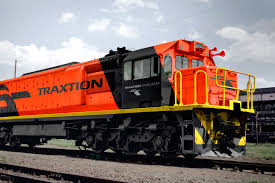Freedom Day in South Africa, celebrated on the 27th of April, marks the first non-racial democratic elections held in 1994, a monumental event that signaled the end of apartheid. It ushered in a new era of political freedom, a time when South Africans of all races could vote for the first time. While Freedom Day is a momentous occasion, the reality of modern-day South Africa prompts some to reflect deeply on the actual state of freedom in the country.
In this context, Kim and Kwaledi, two South African citizens with differing experiences, engage in a candid discussion about the significance of Freedom Day today. Molatelo, a historian and guest speaker, joins them to offer a deeper look into the history of the Bantustans, a critical yet painful chapter in South Africa’s past. Together, they explore the relevance of Freedom Day in contemporary South Africa, confronting hard truths about the progress made and the challenges that remain.
Freedom Day: A Symbol of Victory?
For many South Africans, Freedom Day is a powerful reminder of the country’s remarkable journey from a deeply divided society to one that embraces the values of democracy and human rights. For Kim, the day signifies a triumph, a moment to appreciate the sacrifices of those who fought for the liberation of black South Africans. “It’s a day to remember our heroes and the tremendous progress we’ve made. We’ve come far, and that’s something to be proud of,” she reflects.
Kwaledi, however, brings a different perspective. He expresses concern that while the country gained political freedom, the social and economic freedoms that many dreamed of remain elusive for millions of South Africans. “Yes, we have the vote, but is that true freedom? Millions are still living in poverty. Our education system is failing, and unemployment is sky-high. Are we really free if we still have these barriers?” Kwaledi questions, his voice heavy with frustration.
Bantustans: A Legacy of Division
Molatelo, a historian with expertise in South African history, delves into the significance of the Bantustans, also known as “homelands,” which were established during apartheid. These areas were created by the apartheid government to segregate black South Africans, forcing them into underdeveloped, economically deprived regions while maintaining white dominance in urban and prosperous areas. “The Bantustans were a deliberate strategy to weaken black political power and keep the population under control,” Molatelo explains.
He further notes that the legacy of the Bantustans can still be felt today. The regions that were once homelands continue to struggle with poverty, underdevelopment, and limited access to resources. “In many ways, the wounds of apartheid, especially those tied to the Bantustans, have not fully healed. The impact on education, healthcare, and economic development in those areas remains stark,” Molatelo says.
The Lingering Challenges of Economic Freedom
The discussion then turns to the socio-economic challenges that South Africa faces today. Despite political liberation, the promise of economic freedom has yet to reach large portions of the population. South Africa remains one of the most unequal societies in the world, with many people still struggling with poverty, unemployment, and lack of access to quality education and healthcare.
Kim acknowledges these issues but remains hopeful. “We can’t expect to fix everything in just 30 years. What we need is for every South African to keep working towards a better future. It’s about holding our government accountable, but also about us coming together as a nation,” she says.
Kwaledi, however, remains skeptical, stating that until deep-rooted structural inequalities are addressed, the country will continue to see rising discontent and protests. “There’s a growing frustration. People are tired of promises that aren’t being fulfilled. Political freedom is not enough if economic disparities persist,” he argues.
Moving Forward: What Does Freedom Mean Today?
As Freedom Day continues to be celebrated each year, South Africans are left to reflect on what true freedom means in the context of their lives. For some, it is a time to rejoice in the victories of the past. For others, it’s a time to highlight the shortcomings that still plague the nation. The path forward, according to Molatelo, lies in acknowledging both the successes and the failures of the last few decades.
“Freedom is not a destination, it’s a journey. We need to continuously strive for it in all its forms—social, political, and economic. Only then can we honor the legacy of those who fought for it and ensure that future generations experience it fully,” Molatelo concludes.
Conclusion
Freedom Day in South Africa remains a day of reflection, celebration, and critical thought. As Kim, Kwaledi, and Molatelo’s discussion shows, while the country has made significant strides, there is much work to be done to ensure that all South Africans can enjoy the full fruits of freedom. The road to true freedom, especially economic freedom, is ongoing, and it will take a collective effort from all South Africans to achieve a more just and equal society.

